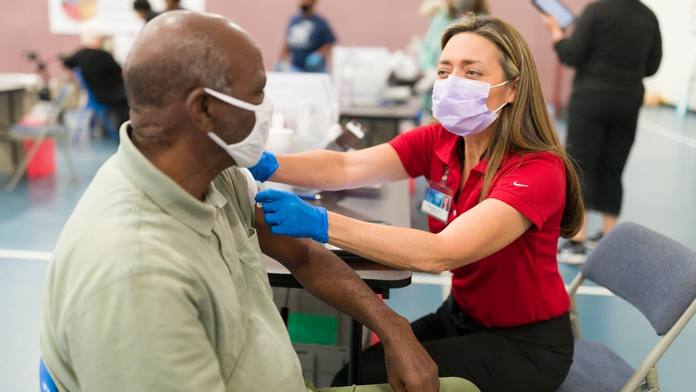-
COVID-19
Will the COVID-19 booster be like an annual flu shot?

The Centers for Disease Control and Prevention (CDC) recently released new recommendations for COVID-19 booster vaccinations. The shots, called bivalent vaccines, are designed to protect people from the original coronavirus strain and highly contagious omicron subvariants. The CDC recommends that everyone 12 and older get the updated booster.
"All of the other components are the same, so it works the exact same way at inducing an immune response. It's just that now this immune response that it creates will target the spike protein from the original strain and these new spike proteins that we're seeing in current viruses," says Dr. Richard Kennedy, co-director of Mayo Clinic's Vaccine Research Group.
Watch: Dr. Richard Kennedy discusses COVID-19 updated booster vaccinations.
Journalists: Broadcast-quality sound bites with Dr. Kennedy are available in the downloads at the end of the post. Please courtesy: "Mayo Clinic News Network." Name super/CG: Richard Kennedy, Ph.D./Vaccine Research Group/Mayo Clinic
The CDC recommends that people wait at least two months since their most recent COVID-19 vaccination before getting the latest bivalent booster shot. Dr. Kennedy says these boosters aren't recommended for children under 12 yet, but he expects that to change as researchers get more data from ongoing clinical trials. The CDC also recommends that anyone who has tested positive for COVID-19 should wait at least three months before getting a booster shot.
"Anybody that's planning on getting a booster should be looking at getting this bivalent booster. It will produce a better immune response that really will provide better protection against the current virus strains circulating," says Dr. Kennedy.
Meanwhile, White House officials have suggested that COVID-19 vaccinations are moving down a path toward becoming yearly, with a schedule similar to flu shots. The annual COVID-19 vaccines will match the circulating strain of coronavirus that is predominant in the population at that time.
"That's a likely scenario. And it really depends on two things. No. 1 is waning immunity due to time. We know that happens with these vaccines. And the second one is how quickly the virus mutates, which also affects how long protection lasts," says Dr. Kennedy.
The CDC recommends everyone over 6 months of age get an annual flu shot when it becomes available. Anyone 12 and older should get a COVID-19 booster when they are eligible and the vaccine is available in their local community. You can text your ZIP code to 438829 or call 1-800-232-0233 to find a vaccination location near you. Dr. Kennedy says it is safe to get a flu shot and a COVID-19 vaccination at the same appointment.
For the safety of its patients, staff and visitors, Mayo Clinic has strict masking policies in place. Anyone shown without a mask was either recorded prior to COVID-19 or recorded in a nonpatient care area where social distancing and other safety protocols were followed.
Information in this post was accurate at the time of its posting. Due to the fluid nature of the COVID-19 pandemic, scientific understanding, along with guidelines and recommendations, may have changed since the original publication date.
For more information and all your COVID-19 coverage, go to the Mayo Clinic News Network and mayoclinic.org.







